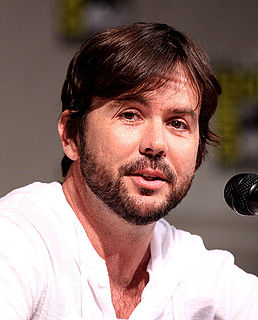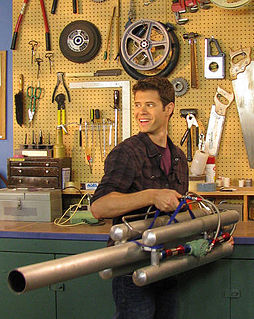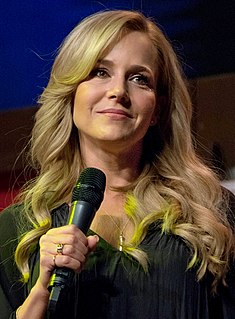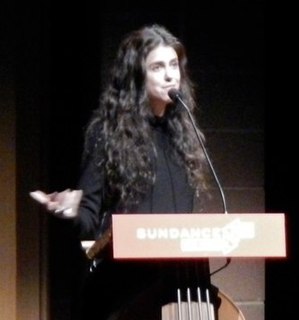A Quote by Julia Stiles
Some of the best projects I've worked on - 'Dexter,' the 'Bourne' series - were leaps of faith. I couldn't read the scripts in advance.
Related Quotes
A living faith is always on trial; we call it faith for that reason. When I read in some alarmist book that the Christian faith is now on trial, or "at the crossroads," my impulse is to answer, Why Not? Does anybody know a time when the Christian faith was not on trial, or when the Christian life was a simple walkover, with neither principalities nor powers to dispute its advance?
A lot of actors choose parts by the scripts, but I don't trust reading the scripts that much. I try to get some friends together and read a script aloud. Sometimes I read scripts and record them and play them back to see if there's a movie. It's very evocative; it's like a first cut because you hear 'She walked to the door,' and you visualize all these things. 'She opens the door' . . . because you read the stage directions, too.
I worked so hard on that role [of Debra in Dexter]. And I barely worked on Rita. But I read for casting - both parts - and they said, "That's great, we're going to bring you in for producers." So I read for some producers - both parts - and they said, "That's great, we're going to bring you in to meet the creator." And I went in, and as soon as I walked in the room, he looked at me and he said, "Oh my god, you're our Rita!" And I said, "No! I'm Deb! I'm a total Deb!" "No, you're Rita!".
I tell you what it is. It's...when I didn't see you, I thought about you every day, I mean every day in some way or another -" "Same here -" "- even if it was just 'I wish Dexter could see this' or 'where's Dexter now?' or 'Christ, that Dexter, what an idiot', you know what I mean, and seeing you today, well, I thought I'd got you back - my best friend. And now all this, the wedding, the baby - I'm so happy for you, Dex. But it feels like I've lost you again.
I've read a hundred fantastic scripts that didn't pan out as films, and I completely put that on the directors. I've also read some mediocre scripts that have ended up being amazing, and I credit that to the directors. They're the storytellers. If you don't have a good storyteller, you really have nothing.
One has to say that they [Eleanor and Franklin Roosevelt] were pioneering to some extent. They didn't know that some of the housing projects that they were putting up for the poor were going to turn into crack dens and rapists' bowers and things of that sort, which they have since become. But you can't always foresee the future. I'm sure their intentions were the best.
The test for me, when I read other people's scripts, is whether I feel like there's something about me that is the best person to tell this story. I have a pretty high bar for myself. There's a lot of scripts that I read and think, "Oh, this is great, but I think there are 50 other directors who could bring this to the cinema."



































